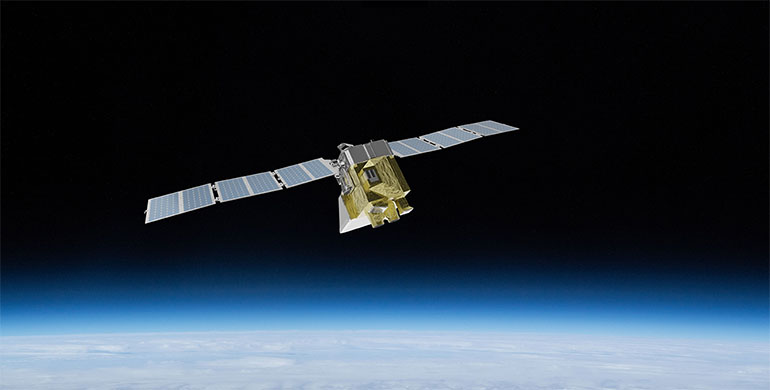MethaneSAT space mission
As part of the global effort to combat climate change, New Zealand is participating in the MethaneSAT space mission.
On this page
MethaneSAT update, July 2025
In a statement issued today, MethaneSAT LLC, owners of the MethaneSAT satellite, advised contact with the satellite was lost on 20 June and attempts to restore communication have been unsuccessful. The statement confirmed that the satellite has now lost power and it is likely unrecoverable.
Clearly this is a disappointing development. New Zealand has been a partner in the MethaneSAT mission since 2019, which is a collaboration with the US-based Environmental Defense Fund.
Core mission to turn methane measurement data into action will continue(external link) — methanesat.org
About the MethaneSAT space mission
Methane is a potent greenhouse gas that contributes significantly to the amount of warming that we are experiencing. New Zealand is participating in the MethaneSAT space mission as part of the global effort to combat climate change.
MethaneSAT is a state-of-the-art satellite designed to detect global methane emissions with unprecedented accuracy. The MethaneSAT satellite is unique because it can measure over a large area and focus on specific targets.

Find out more about MethaneSAT:
New Zealand's contribution
We are making 2 main contributions to the MethaneSAT mission:
- an Atmospheric science programme, funded from Catalyst: Strategic over 4 years
- the Mission Operations Control Centre, funded from the Strategic Science Investment Fund.
This investment will build important capability in our space sector, enable New Zealand researchers to work with world-leading atmospheric scientists, and make an important contribution to slowing global warming.
In 2019 MBIE signed an agreement to collaborate with the Environmental Defense Fund and its subsidiary MethaneSAT LLC, who are leading the mission.
“New Zealand has been an early and essential partner in the MethaneSAT journey, bringing strong scientific and technical capabilities to the project and allowing us to integrate agricultural emissions into the mission.” The New Zealand government investment in MethaneSAT will help us achieve our goal to find and quantify methane emissions worldwide, and track reductions in emissions of this powerful greenhouse pollutant. We value the enthusiasm and insight that New Zealand brings to this project.”
Dr. Steven Hamburg
Project Co-lead, MethaneSAT and Chief Scientist at Environmental Defense Fund
Atmospheric science programme
Catalyst: Strategic is funding a research project that will use the MethaneSAT satellite to test the potential to use satellites to accurately measure methane emissions from agriculture, both in New Zealand, and around the world. This multi-institution, multi-disciplinary team of Aotearoa’s leading researchers in atmospheric science and remote sensing is led by Dr Sara Mikaloff-Fletcher of NIWA.
In addition to the agricultural methane emissions research, the New Zealand science team will work with international researchers from Harvard University and Smithsonian Astrophysical Observatory who are leading the MethaneSAT mission’s science on emissions from the oil and gas sector.
Fighting climate change from space: MethaneSAT(external link) — YouTube
Find out more about the atmospheric science project(external link) — NIWA
Find out more about Catalyst: Strategic – MethaneSAT atmospheric science project
Mission Operations Control Centre (MOCC)
The Mission Operations Control Centre (MOCC) will monitor, control and support the satellite. It will be hosted by the University of Auckland’s Te Pūnaha Ātea-Auckland Space Institute.
Being based at Te Pūnaha Ātea-Auckland Space Institute means students will be able to participate in mission operations activity through structured programmes.
Rocket Lab has established and will operate the Missions Operations Control Centre for about a year after the satellite is successfully in orbit. Then responsibility will transfer to Te Pūnaha Ātea-Auckland Space Institute.
Hosting and operating the centre adds a significant piece of infrastructure to our space system and strengthens New Zealand’s capability to operate complex space missions in future.
Find out more here:
Contact us
General questions
Email us at nzspaceagency@mbie.govt.nz
Atmospheric science programme questions
Email us at internationalscience@mbie.govt.nz
MOCC questions
Email us at SSIF.investment@mbie.govt.nz

